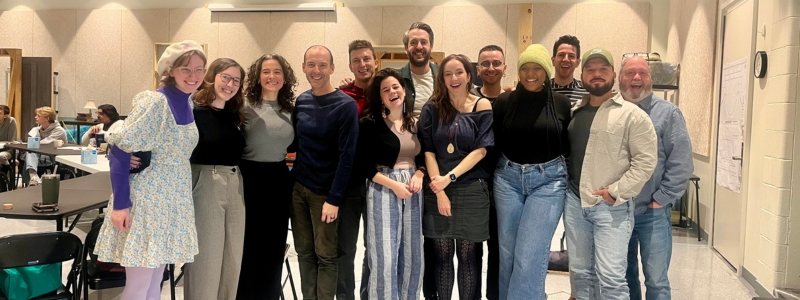“I Became Aware of the World as the World was Becoming Aware of AIDS”

Exciting news! Pulitzer finalist and author of The Great Believers Rebecca Makkai stopped by the Falsettos rehearsal room on October 16 to discuss the AIDS crisis in Chicago; survivor narratives; the importance of keeping this history alive; and Falsettos place in that legacy.
“We were the great believers. I have never cared for any men as much as for those who felt the first springs when I did, and saw death ahead, and were reprieved — and who now walk the long stormy summer.” – F. Scott Fitzgerald
In this moving conversation between Makkai, the Falsettos cast and creative team, and a select group of students from the University of Chicago, Makkai outlined her research process for The Great Believers, as, at the time of writing, she noticed there were huge gaps in the historical record of the AIDS epidemic in America’s third-largest city. To learn more, she interviewed people who survived the AIDS epidemic in Chicago; people whose loved ones contracted HIV/AIDS; and healthcare professionals who treated HIV/AIDS patients during this time. These conversations were revelatory and revealing, offering a touching, thoughtful portrait of a community in crisis and providing crucial context for The Great Believers.
This is also crucial context for Falsettos. As explained by Makkai (who also happens to be a fan of the production), because so much of the show is, in fact, not about the epidemic, by the time AIDS enters the narrative, the audience has a more acute sense of these characters’ hopes for the future and what AIDS was disrupting.
Since Falsettos premiered, there has certainly been progress, but the AIDS epidemic is not over. People are still living with HIV/AIDS and there is a continual need to raise awareness, funds, and support for those impacted. In that way, while Falsettos looks back at a specific moment in time, it is also a call to action for our present moment. We must continue to love one another; we must continue to support one another.
